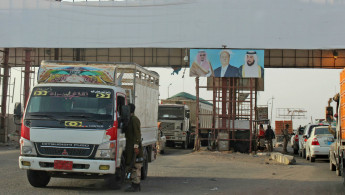Yemen PM seeks reconciliation after deadly Aden clashes
Yemen's prime minister appealed on Wednesday for reconciliation with southern separatists after deadly clashes last month in which they seized almost all of Aden where his government has its base.
Mediation efforts by Saudi Arabia and the United Arab Emirates have persuaded the separatists to lift their siege of the presidential palace and hand back three military camps to government troops, security sources told AFP.
But they remain in control of the rest of Yemen's second city as well as swathes of neighbouring provinces.
Prime Minister Ahmed bin Dagher called for an end to the infighting between the rival sides, which had previously fought together against the Houthi rebels who control the capital Sanaa and much of the north.
"The mission today is to bridge the gap, heal the wounds and abandon political escalation," Dagher told the first cabinet meeting since the fighting.
"Based on directives from the president, we will work for social reconciliation in Aden and neighbouring provinces to pave the way for comprehensive national reconciliation," government-run media quoted him as saying.
President Abedrabbo Mansour Hadi, who is based in exile in Saudi Arabia, has struggled to keep together a disparate loyalist alliance, which has relied heavily on southern separatist forces.
South Yemen was an independent country until its unification with the north in 1990.
The three days of clashes last month, in which 38 people were killed and 222 wounded, erupted after government troops tried to prevent a rally calling for its restoration.
More than 10,000 people have been killed and millions displaced since Saudi Arabia and its allies joined the Yemeni government's war against rebels in 2015.
Yemen faces the world's worst humanitarian crisis with around 8.4 million of its 22.2 million population at risk of famine, according to the UN.





 Follow the Middle East's top stories in English at The New Arab on Google News
Follow the Middle East's top stories in English at The New Arab on Google News


